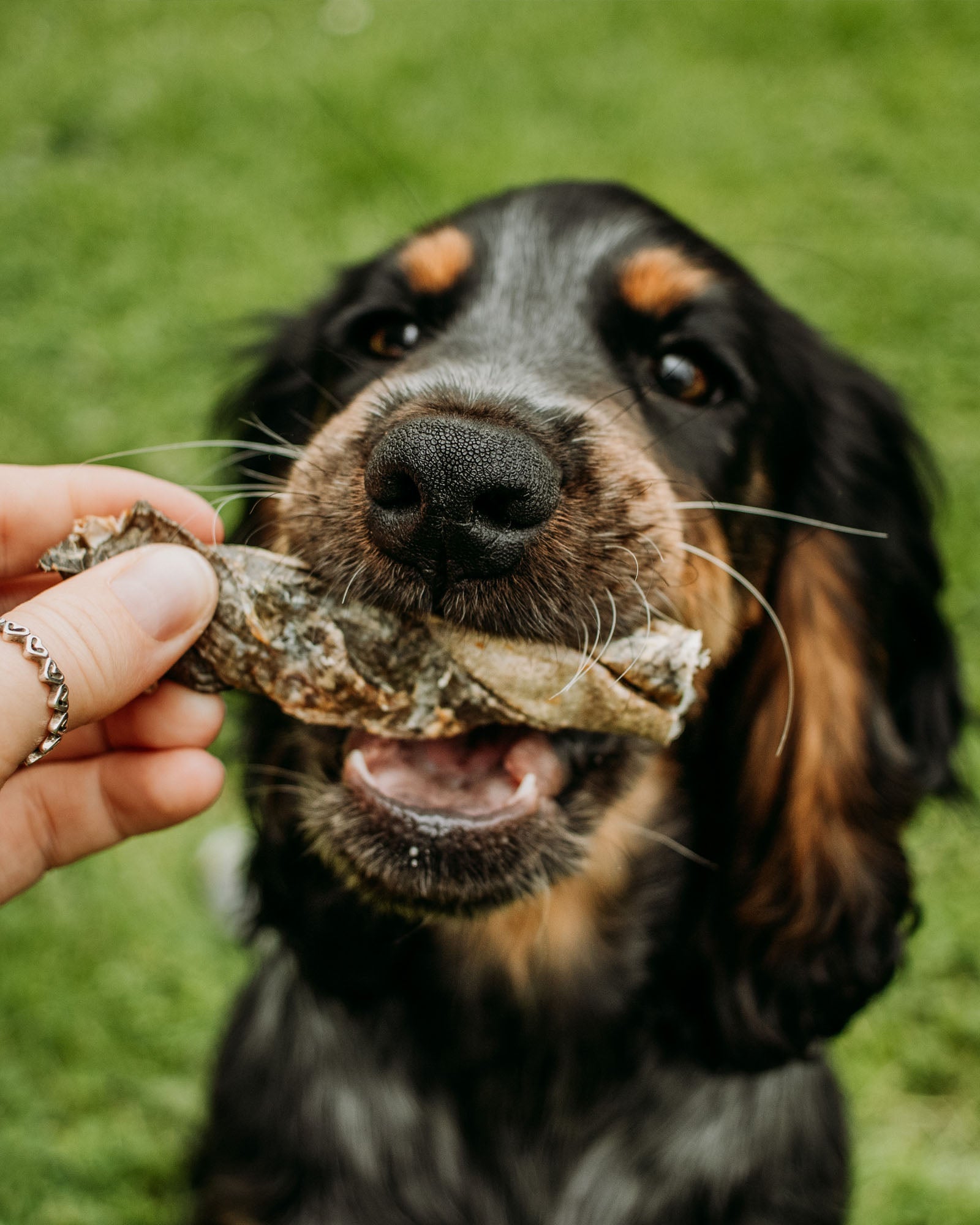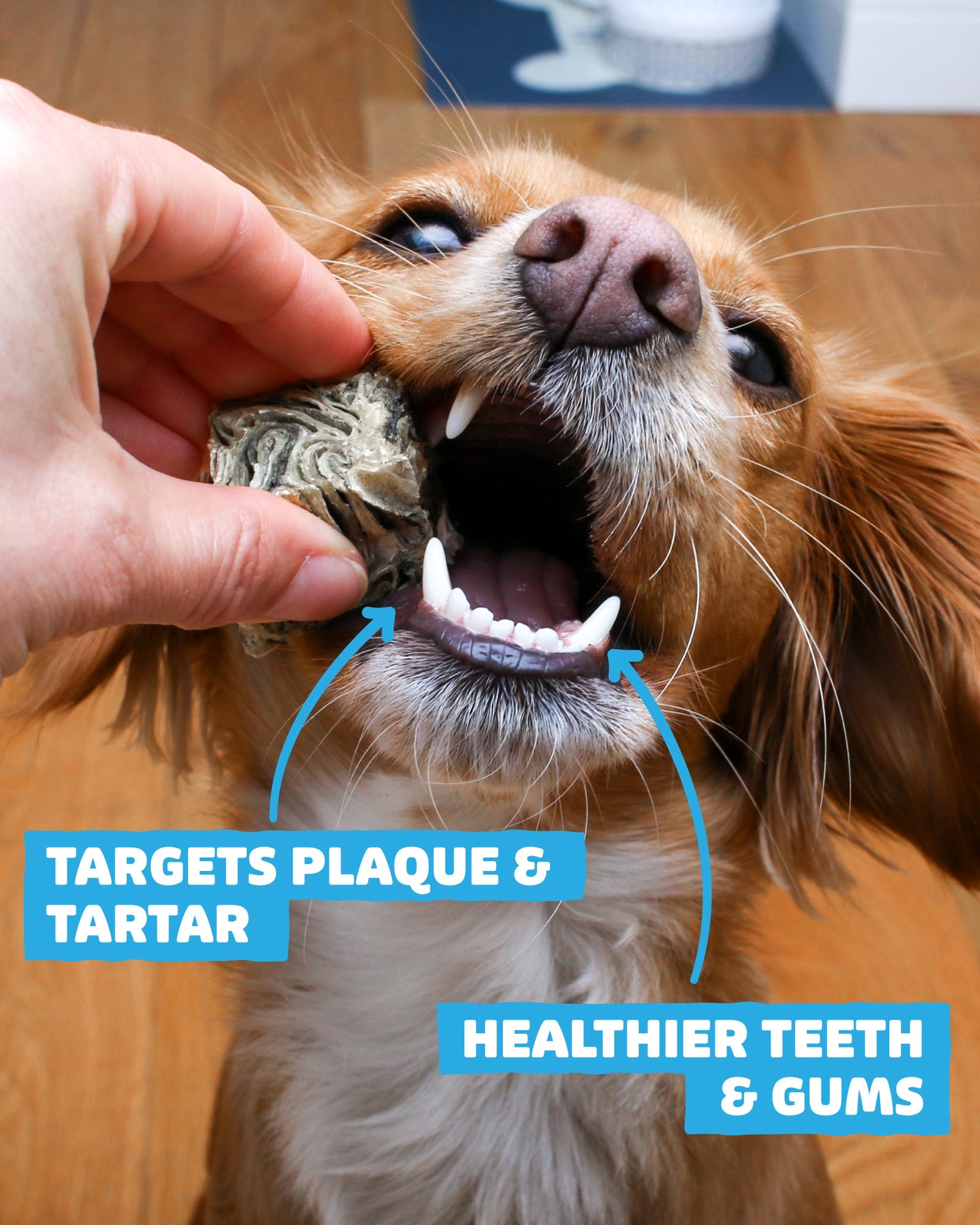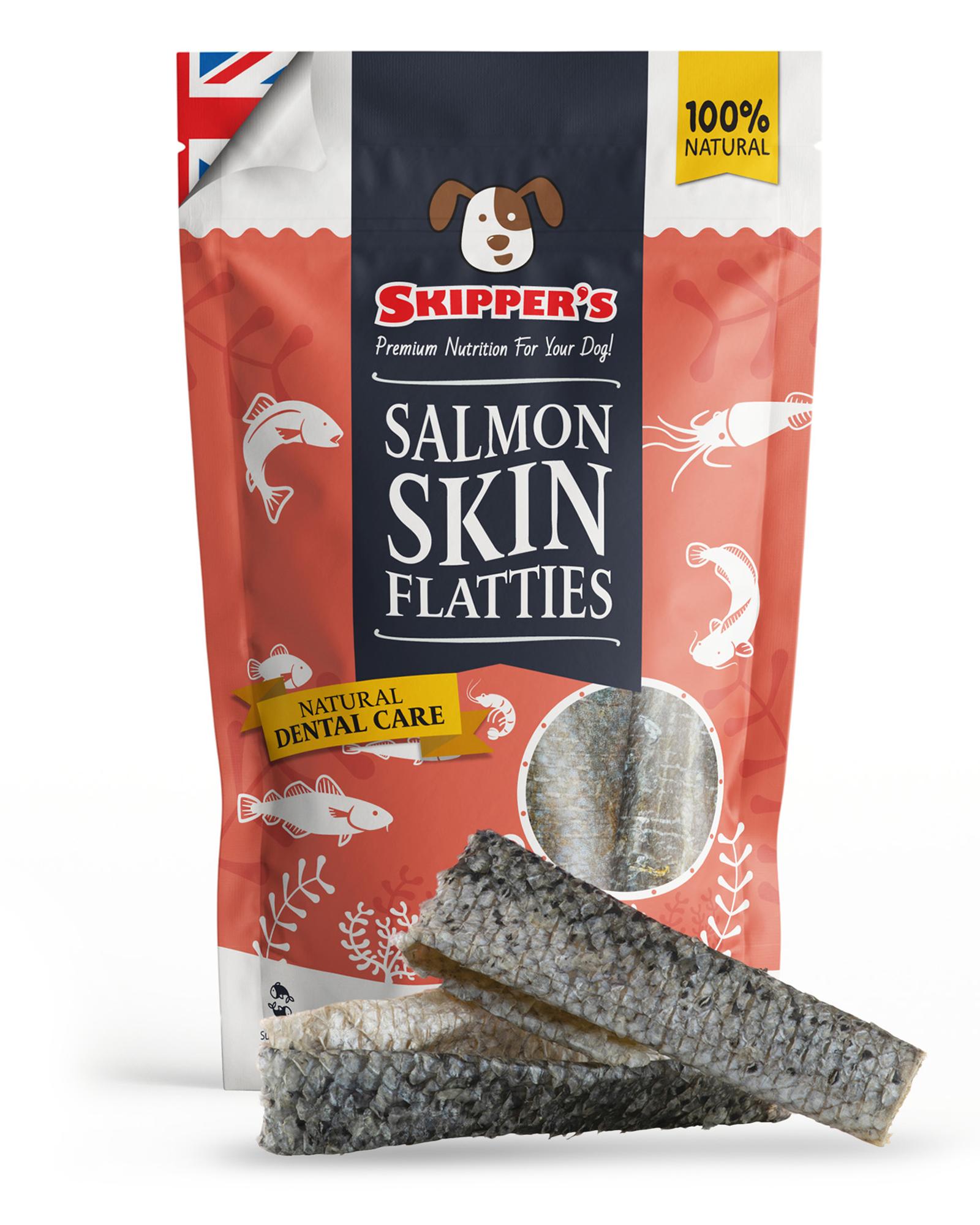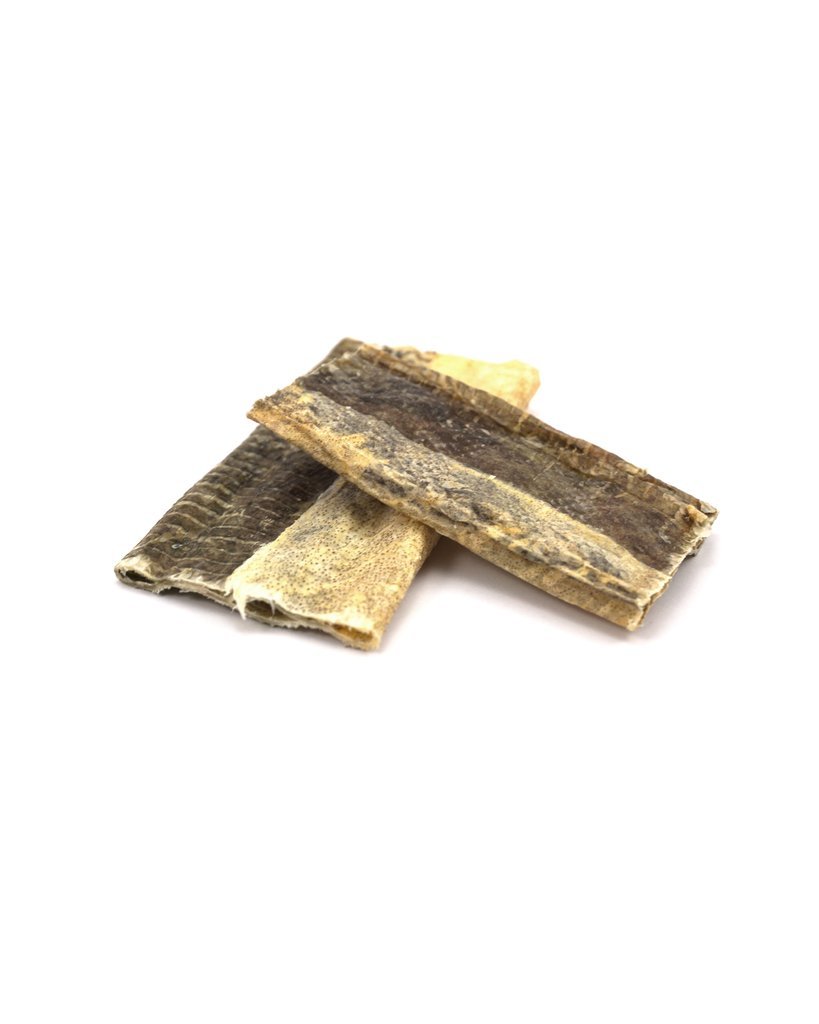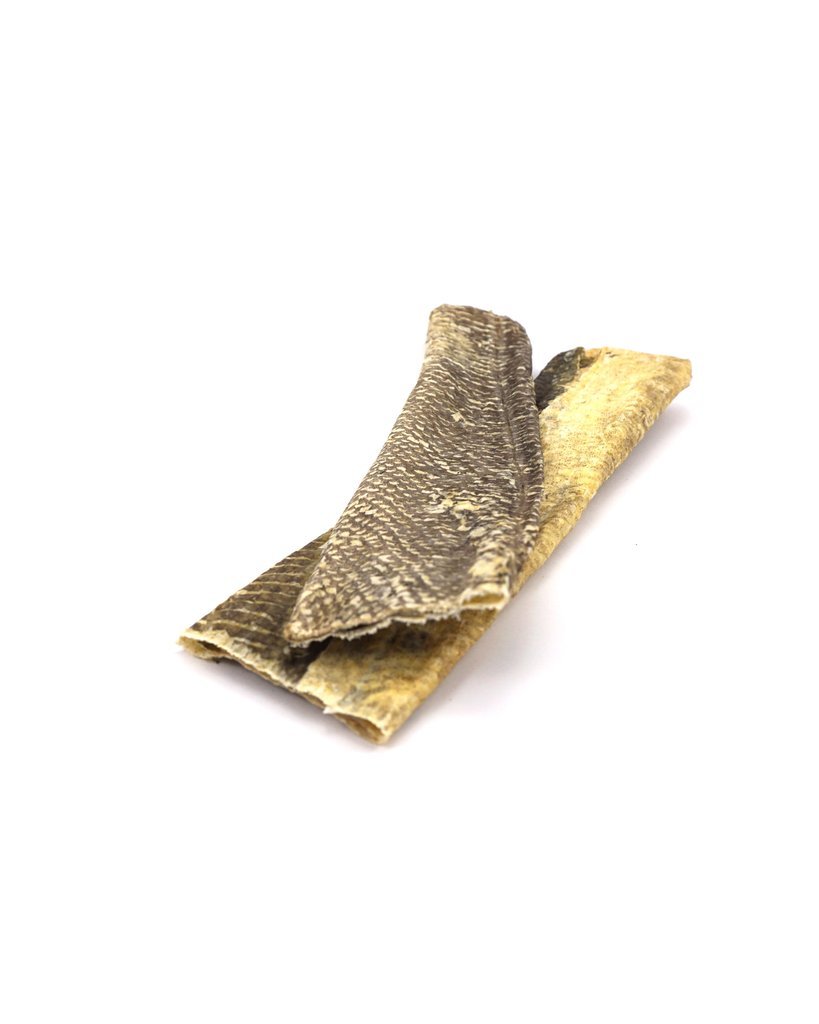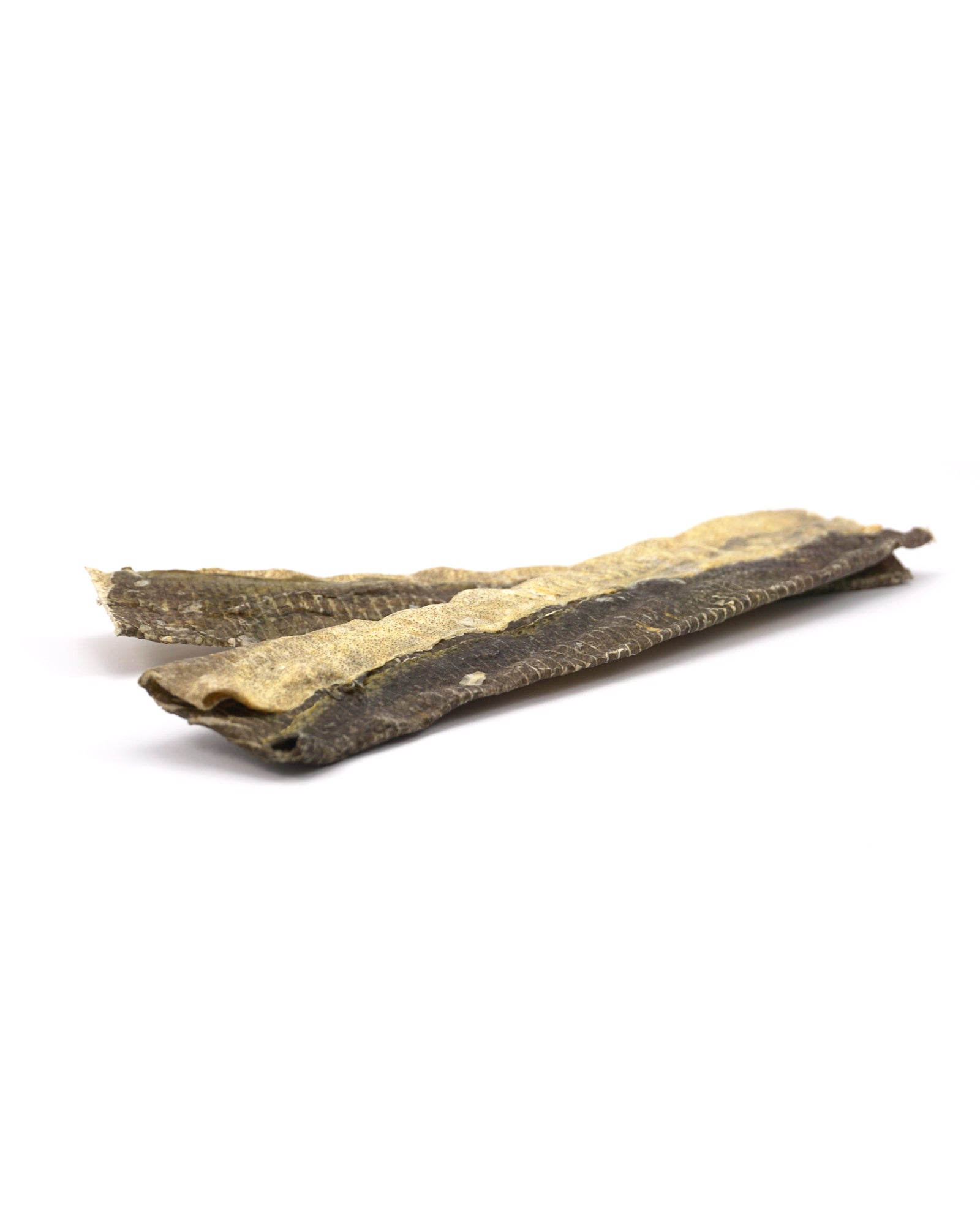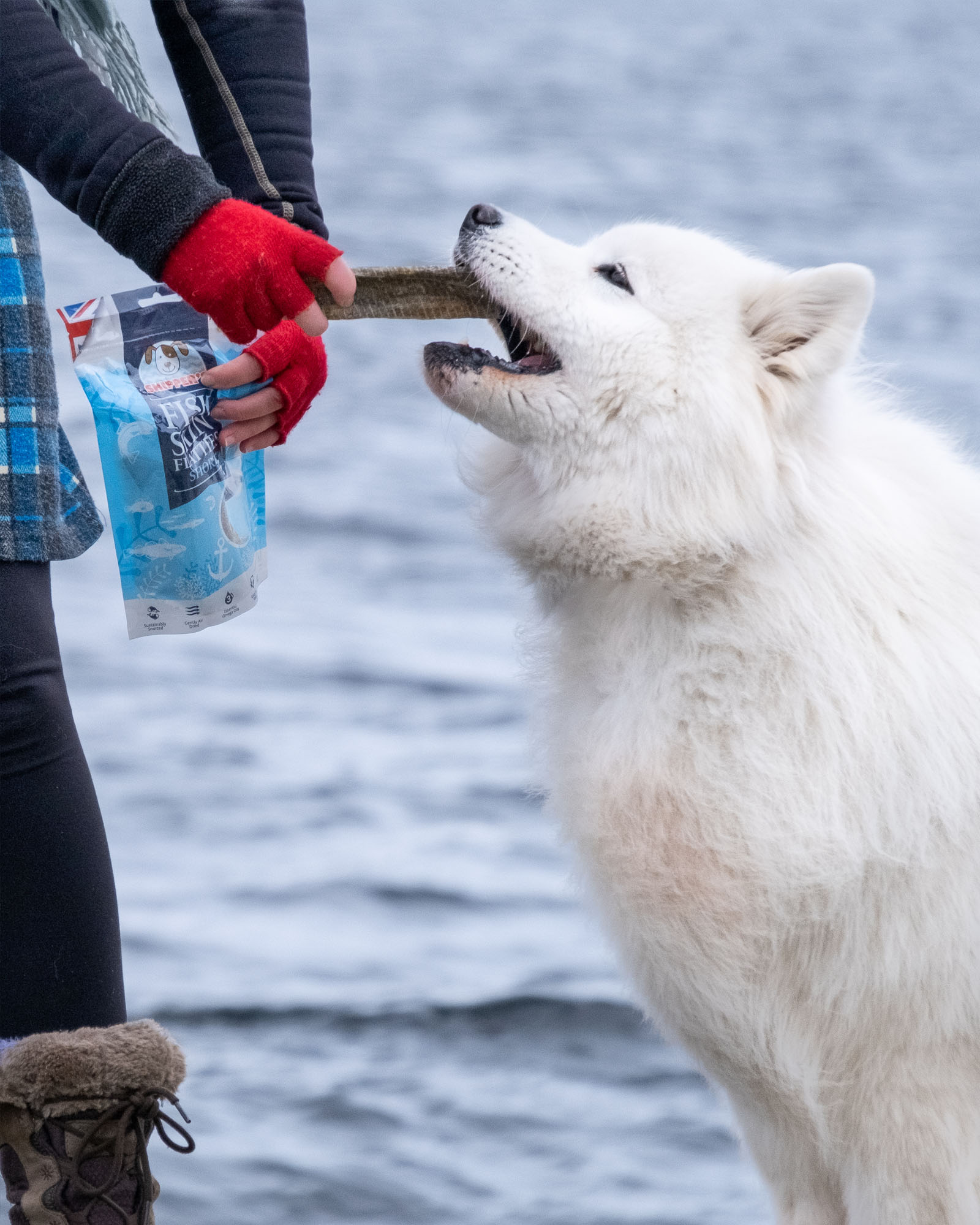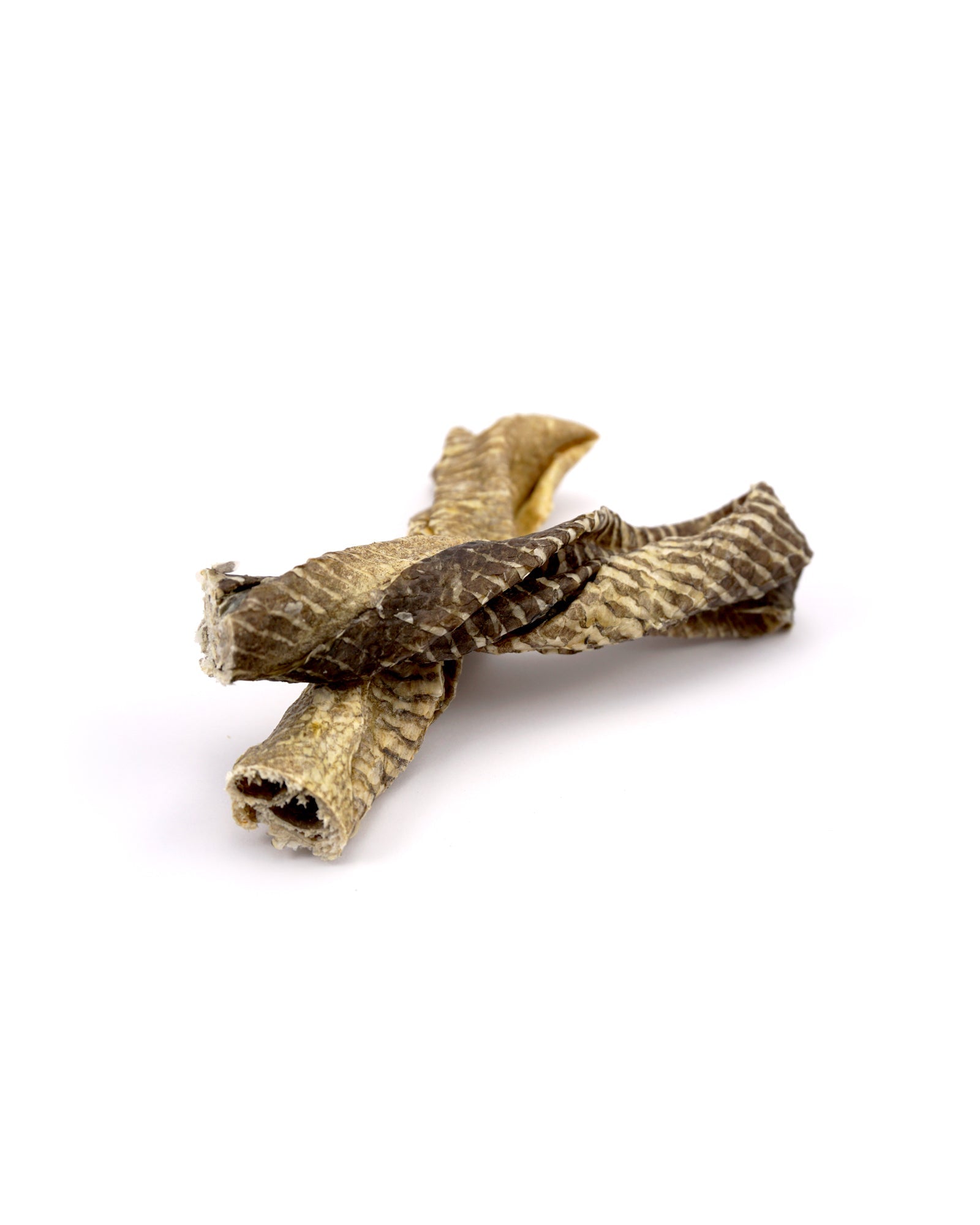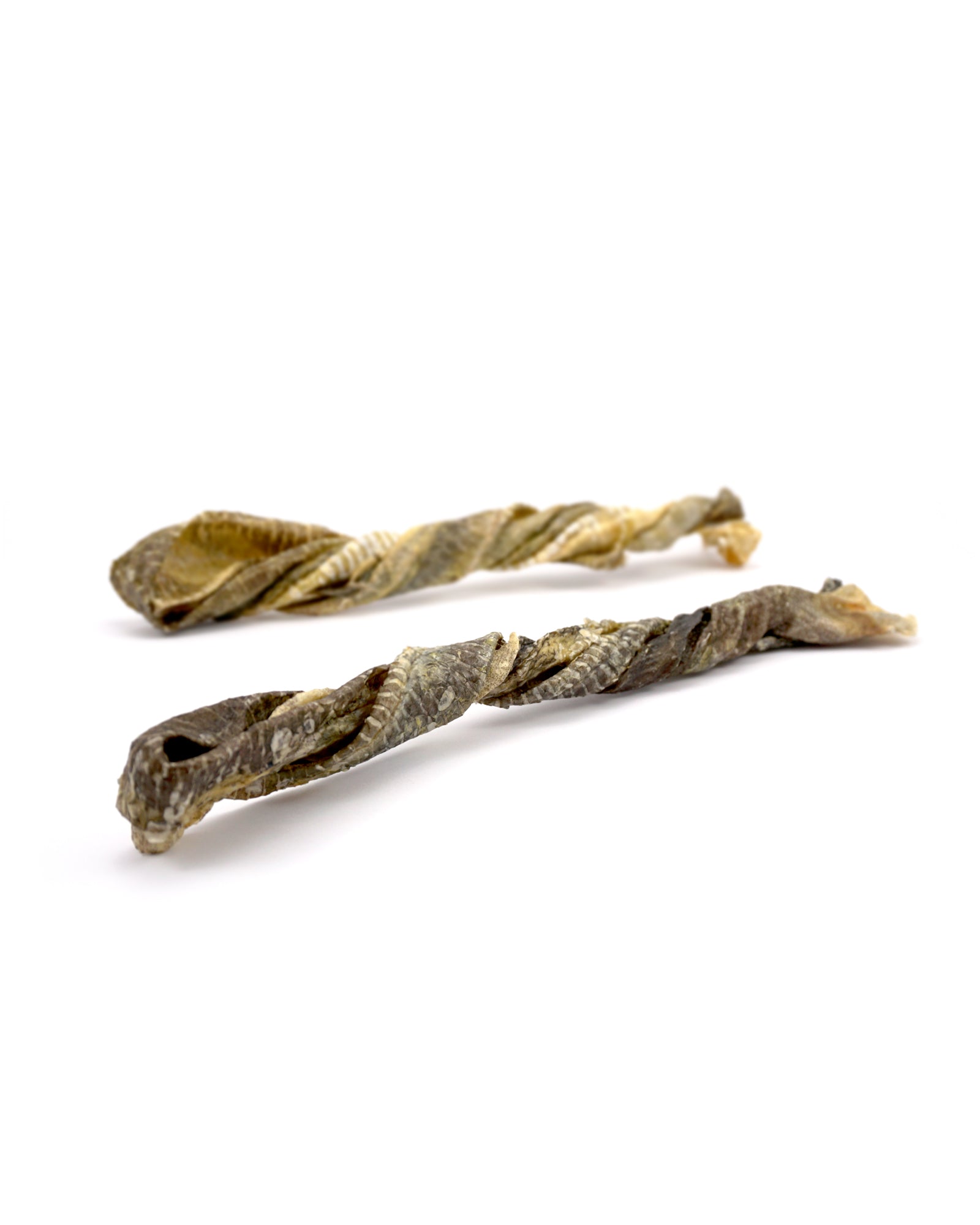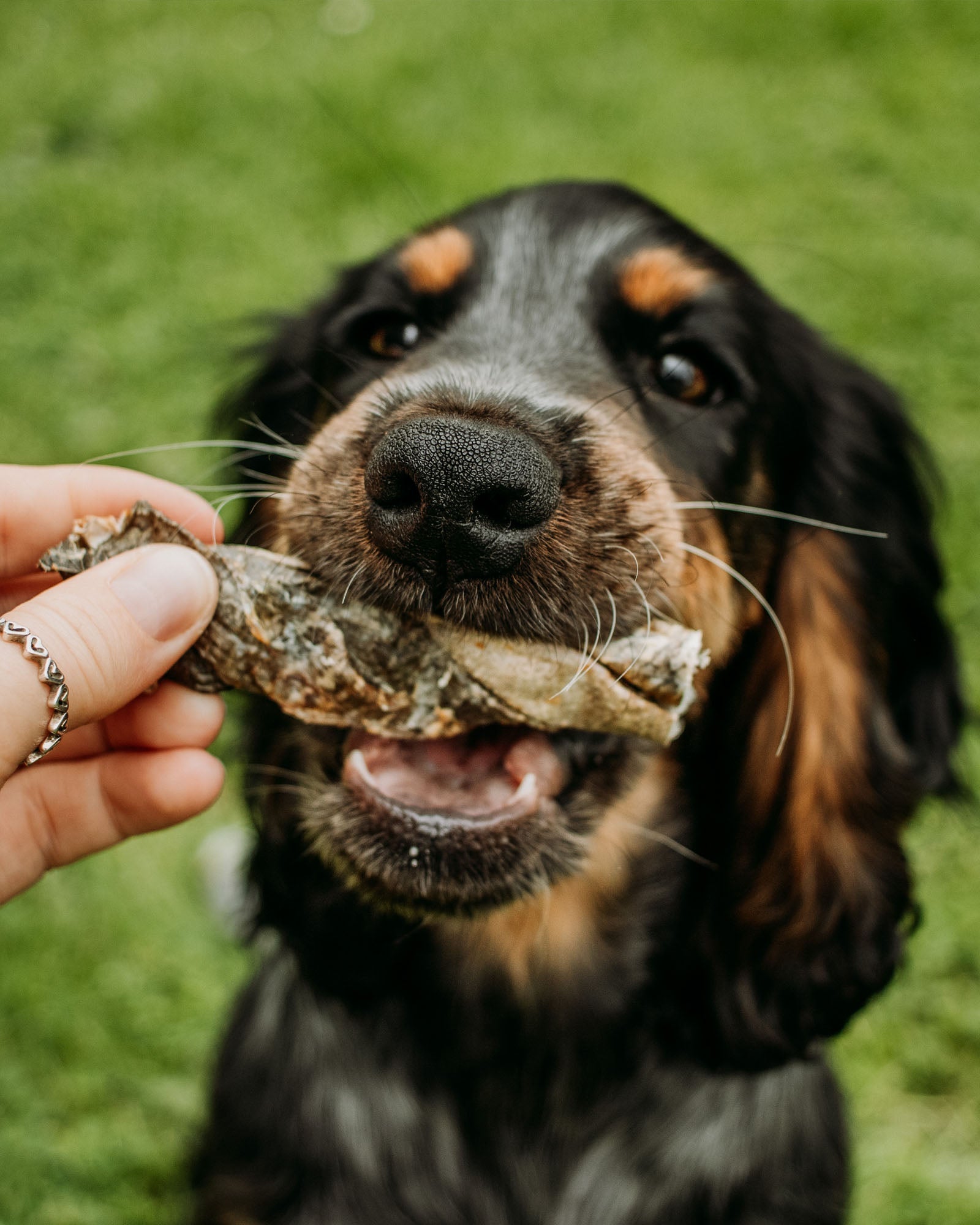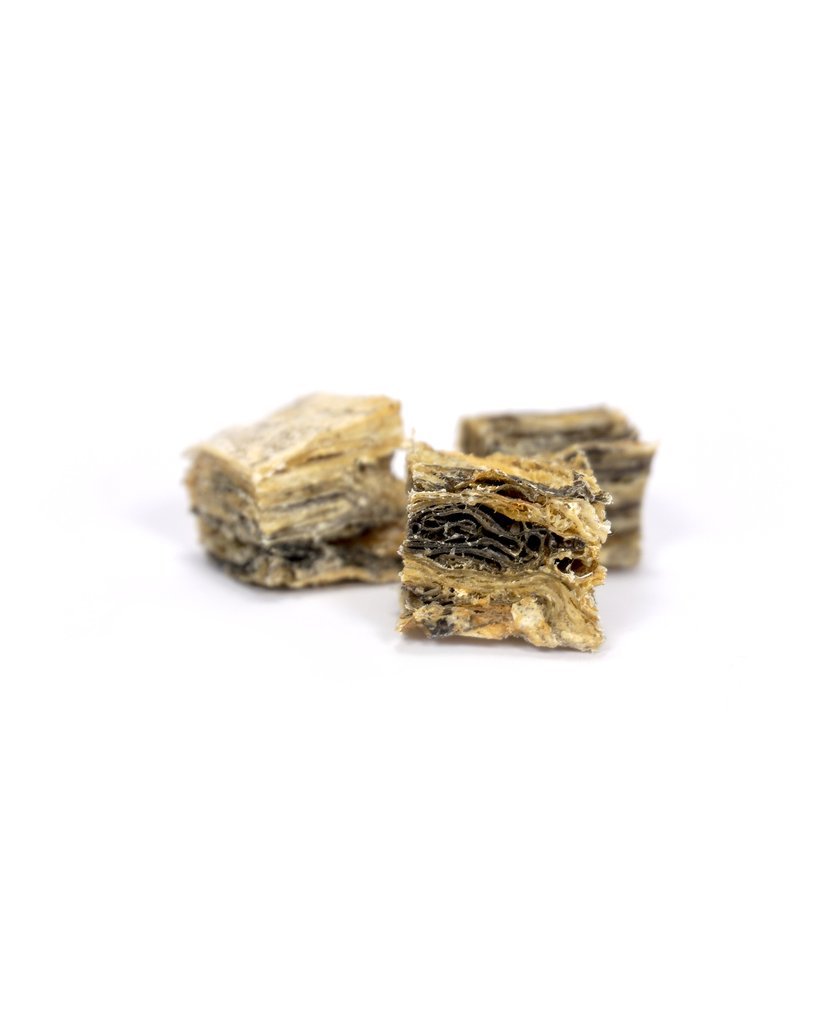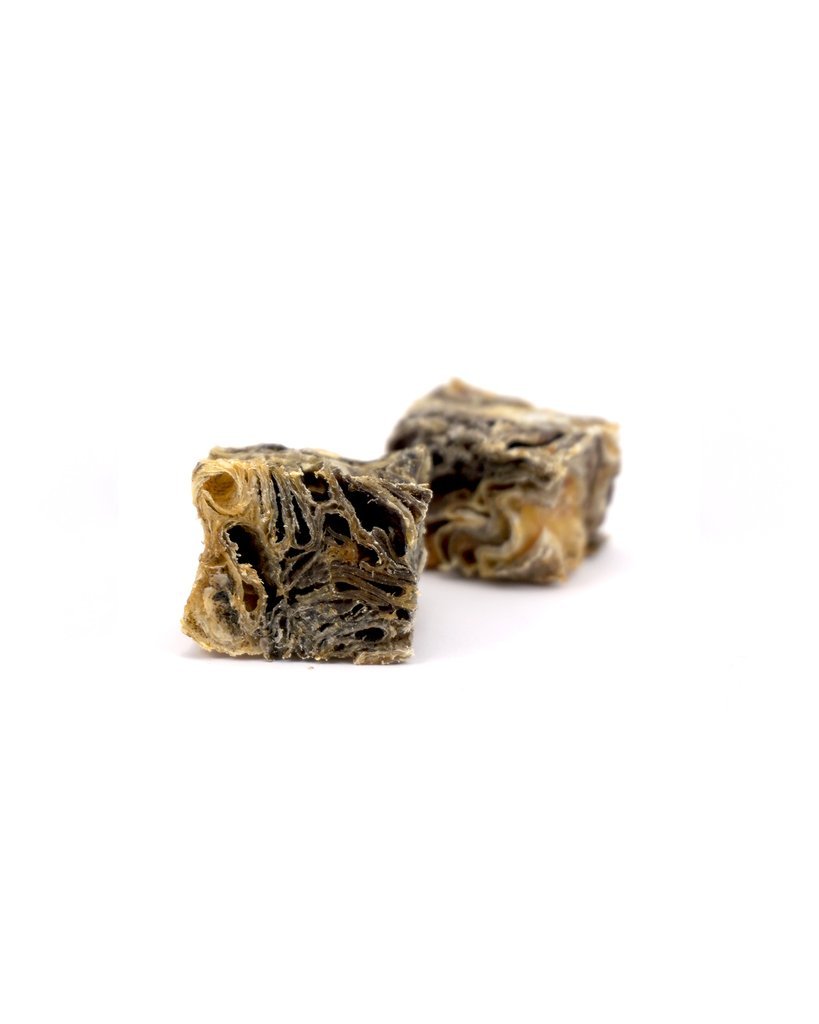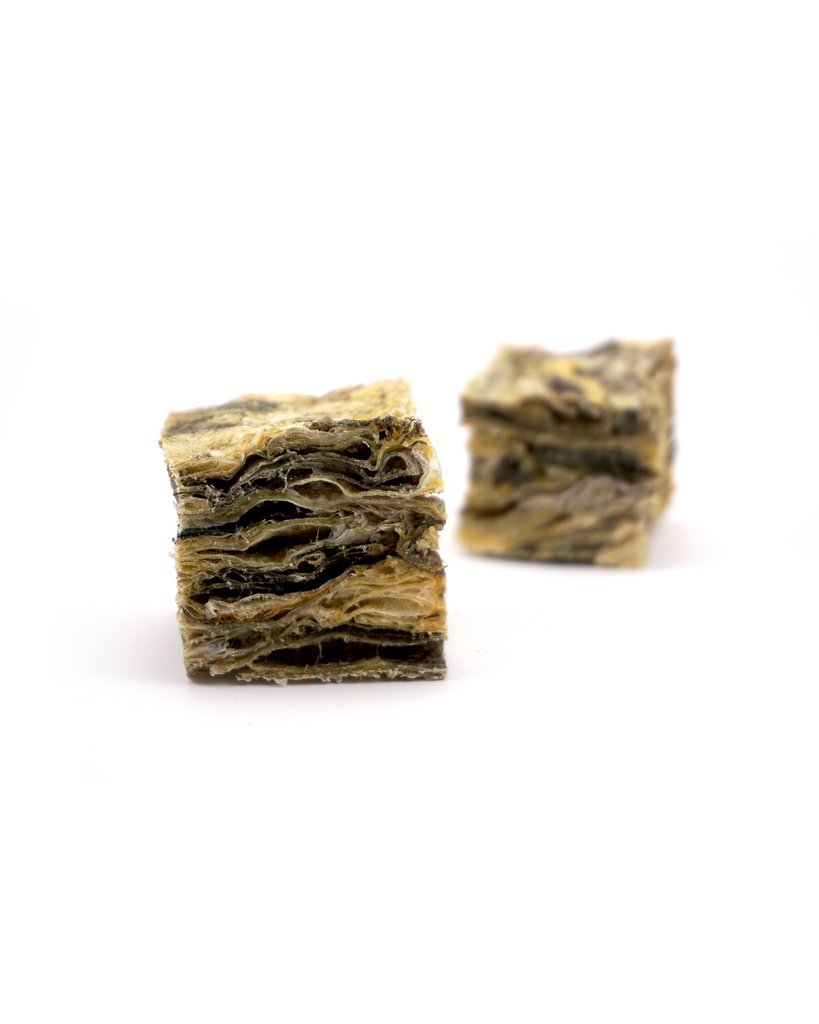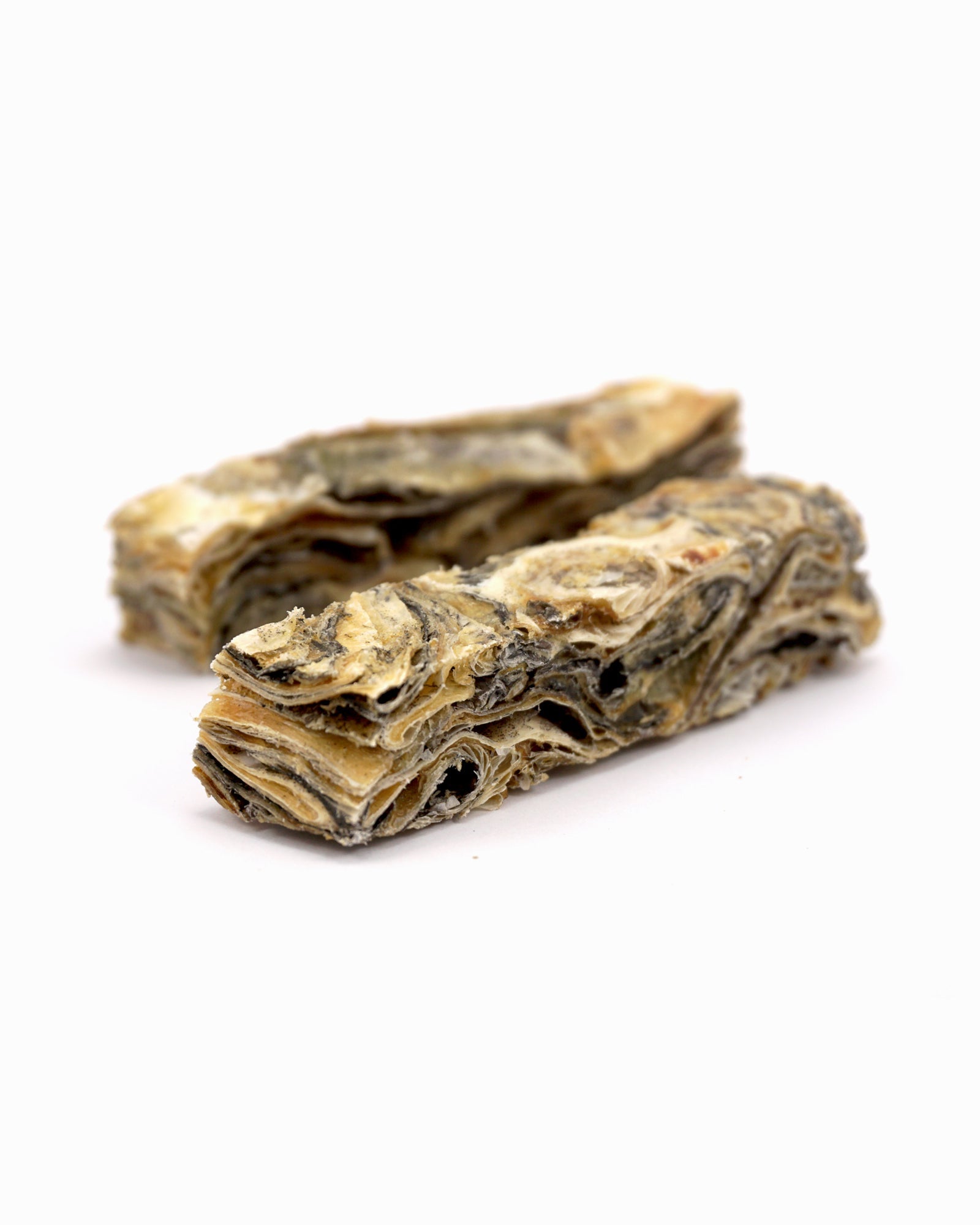Why Do Dogs Eat Grass? | Causes, Risks and Prevention

Have you ever wondered why your beloved canine companion insists on nibbling at the grass during your daily walks or backyard adventures? If so, you're not alone. Dogs eating grass has puzzled pet owners for generations, sparking countless debates and theories about its causes and implications.
Discover the various reasons behind this behaviour and its potential risks and dangers. There'll be no blade of grass unturned.
Reasons your dog eats grass
There are several reasons behind your dog's grass-eating behaviour. From instinctual urges to dietary needs, dogs may nibble on grass for a variety of purposes.
Boredom
Boredom is a common motivator for dogs to eat grass. Just like humans, dogs can get bored and seek out activities to alleviate their boredom. Chewing on grass provides sensory stimulation and can serve as a form of entertainment for your canine companion.
Nausea relief
Whilst it may seem concerning, this behaviour could be your dog's way of self-medicating to relieve nausea. Dogs instinctively eat grass to induce vomiting, which can help them expel indigestible materials or soothe an upset stomach.
In a survey conducted among veterinary students, observations were made regarding signs of sickness before dogs consumed grass. Surprisingly, none reported signs of sickness beforehand, and only 8% noted that their dogs would regularly vomit after consuming grass. Although grass-eating is commonly considered normal behaviour, persistent grass consumption accompanied by vomiting may signal an underlying health issue that warrants veterinary attention. If you're concerned about your dog's grass-eating habits, it's best to consult with your veterinarian.
Mouth discomfort
If your dog is experiencing discomfort in their mouth or gums, they may turn to grass as a way to alleviate the pain. Chewing on grass can provide relief from dental issues such as toothaches or gum inflammation. If you suspect that your dog's grass-eating behaviour is due to mouth discomfort, it's essential to have their oral health evaluated by a veterinarian.
Exploratory behaviour
Dogs, with their natural curiosity, are always eager to explore their environment. This innate behaviour can lead them to eat grass, a part of their exploratory nature, as they investigate the sights, smells, and textures of their surroundings. It's important to note that whilst this behaviour is generally harmless, it's crucial to ensure that the grass your dog consumes is free from pesticides or other harmful chemicals to maintain their safety and well-being.
Palatability
Believe it or not, some dogs simply enjoy the taste of grass. The lush green blades may be enticing to your furry friend, prompting them to nibble on the lawn during playtime or outdoor adventures.
Natural instinct
Another reason why your dog eats grass may have evolutionary roots dating back to their wild ancestors. In the wild, canines would consume plant matter as part of their diet, which could include grasses and other vegetation. This instinctual behaviour may persist in domestic dogs today, even though their nutritional needs are typically met through commercial dog food.
Parasites
One theory behind why dogs eat grass is that they instinctively seek out natural remedies to rid their bodies of intestinal parasites. Whilst grass consumption may cause dogs to vomit, it's unlikely to eliminate parasites from their system effectively. Instead, regular deworming treatments prescribed by a veterinarian are the most reliable way to protect your dog from parasitic infestations.
Lacking fibre
Dogs require a balanced diet to support their overall health and well-being, including adequate fibre intake for proper digestion. If your dog isn't getting enough fibre from their food, they may turn to grass as a source of roughage. In fact, one study of an 11-year-old Miniature Poodle found that for 7 years, the dog would vomit every time it consumed grass. The Miniature Poodle was swapped over to a high-fibre diet, and after the dietary change, the dog did not eat plants and vomit.
This study shows that ensuring your dog's diet is nutritionally balanced can help reduce their inclination to eat grass for dietary reasons.
Is it normal that my dog eats grass?

There have been some studies to find out why dogs eat grass, and each study concluded this behaviour is normal. One group of researchers deduced that grass eating 'should not be seen as a problematic behaviour for most dogs or as indicative of illness' because their study found that all dogs 'were in good health and readily ate grass'.
Dogs are omnivores by nature, and their diet may include a variety of plant-based foods, including grass. However, if you're concerned about your dog's grass-eating behaviour, please visit a vet.
Can eating grass cause digestive issues in dogs?
Whilst occasional grass consumption is unlikely to cause digestive issues in dogs, excessive grass eating can lead to gastrointestinal upset as the grass may contain pesticides or other harmful substances, which can irritate their stomach and intestines.
How to stop your dog from eating grass
Identify triggers
The first step in addressing your dog's grass-eating behaviour is to identify the triggers that prompt them to indulge in this habit. Keep a close eye on your dog's behaviour and note any patterns or situations that coincide with their grass consumption.
Provide sufficient exercise and mental stimulation
Dogs often resort to undesirable behaviours such as grass-eating when they're bored or understimulated. Ensure that your dog gets plenty of physical exercise and mental stimulation through daily walks, playtime, and interactive toys to keep them engaged and satisfied.
Ensure a balanced diet
A nutritious and balanced diet is essential for your dog's overall health and can help reduce their inclination to eat grass. Ensure that your dog's food provides all the essential nutrients they need, including adequate fibre for digestion.
Offer safe alternatives
Provide your dog with safe chew toys or long-lasting dog treats that they can chew on instead of grass. Choose toys made from durable materials that are designed for chewing to prevent dental damage or ingestion hazards.
Train and redirect behaviour
Use positive reinforcement training techniques to teach your dog alternative behaviours to replace grass-eating. Redirect their attention with commands such as "leave it" or "drop it" and reward them with praise or treats when they comply.
When should I contact my vet?
Whilst grass-eating behaviour is generally considered normal for dogs, there are certain situations where it's advisable to seek veterinary advice. If your dog's grass consumption is excessive, accompanied by vomiting, diarrhoea, abdominal discomfort, lethargy, or other concerning symptoms, it's essential to consult with your veterinarian. Your vet can evaluate your dog's health and determine if any underlying issues need to be addressed.
Frequently Asked Questions
Can my dog get a blockage from eating grass?
Yes, dogs can potentially develop intestinal blockages from eating grass, especially if they consume large quantities or if the grass blades are long and fibrous. Ingested grass blades can become tangled in the intestines and cause obstructions, leading to symptoms such as vomiting, abdominal pain, and lethargy. If you suspect that your dog has ingested a significant amount of grass or is showing signs of a blockage, seek veterinary care immediately.
Will my dog get diarrhoea from eating grass?
Grass consumption can sometimes cause gastrointestinal upset in dogs, including diarrhoea, but it's not a common occurrence. Most dogs can tolerate eating small amounts of grass without experiencing digestive issues. However, if your dog develops diarrhoea after eating grass, it may be a sign of an underlying problem, such as dietary intolerance, gastrointestinal infection, or ingestion of toxic substances. Monitor your dog closely and consult with your veterinarian if diarrhoea persists or is accompanied by other symptoms.


